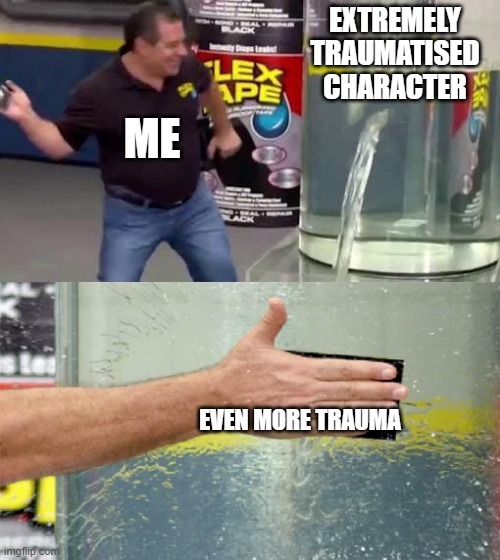Photo

queencember day 6: gaming
does queen deltarune run doom? ofc she does. everything does
2K notes
·
View notes
Photo
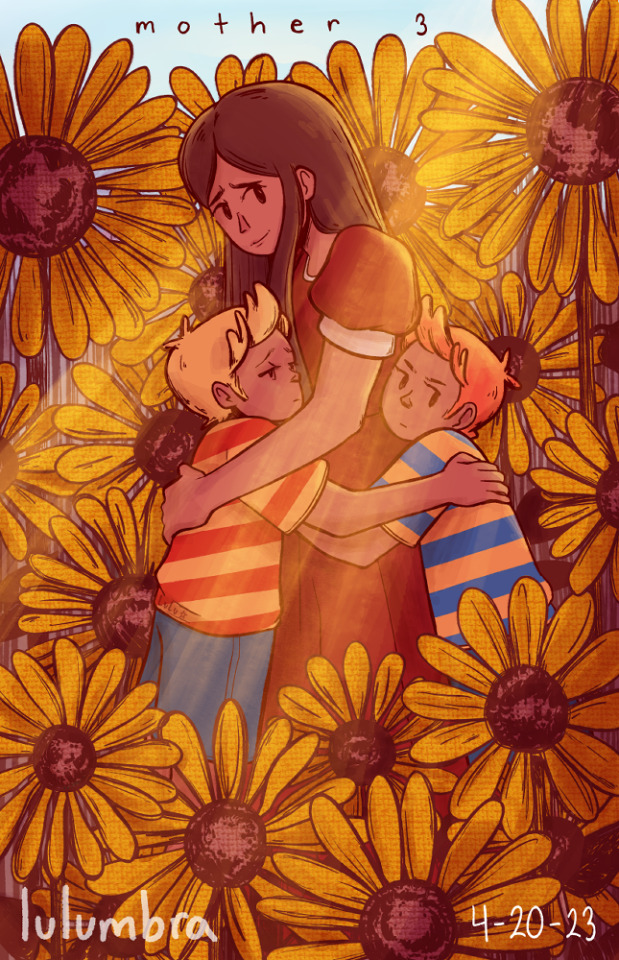
mother 3 belated anniversary art :)
202 notes
·
View notes
Text
Scales Balanced
“God, he’s a kid. He didn’t know anything about what was happening with us; he was just trying to protect someone he cared about.”
“And did he know that the person he was trying to protect was a goddamn killer?”
“We’re killers, Tommy.”
After all this time, after 20 chapters, my fic Letters is entering its final act. Even if just for the act of working on it, I’m really proud to have come this far on this very personal project. Thanks to everyone who has been reading.
Start from the beginning.
2 notes
·
View notes
Photo
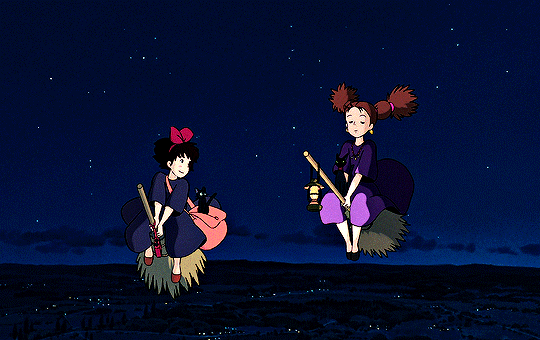


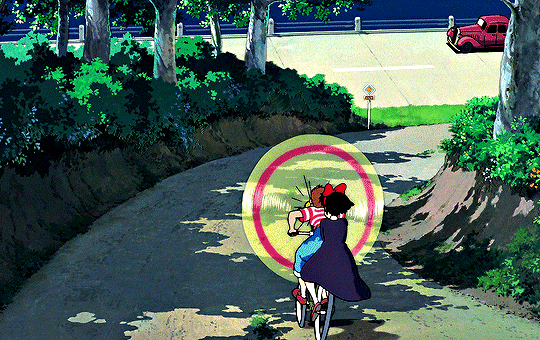
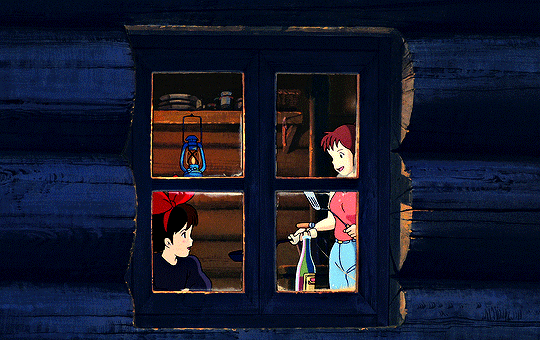

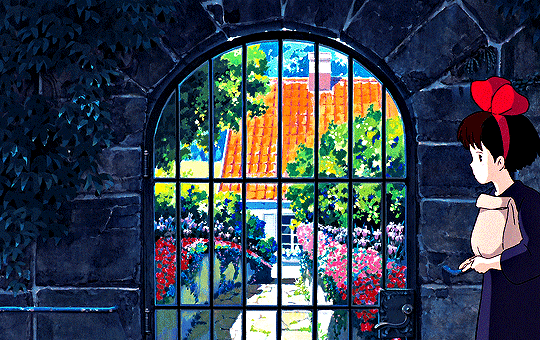
I think something’s wrong with me. I make friends, then suddenly I can’t bear to be with any of them. The other me, the cheerful and honest one… went away somewhere.
Kiki’s Delivery Service
1989 • dir. Hayao Miyazaki
4K notes
·
View notes
Video
Chuck Territory!
1K notes
·
View notes
Text
Lucky Hank had a great pilot, effortlessly funny dialogue, really excited for next sunday!
2 notes
·
View notes
Text
Saw a poll thati implied people only read fanfiction for shipping. And I KNOW that's not true. but now I'm curious to what the ratio is
Ship fics are referring to any fic that is about two or more characters and their romantic/sexual relationship, where the story revolves around that relation ship, or takes a good chunk of the story
Gen fics refer to any fic where the main plot/story is NOT focused on the romantic/sexual relationship between two or more characters (gen fics can include ships, like if there is an established relation ship, but the fic is not focused on the ship)
The main point though is, do you go looking for ships, or other reasons
#fanfiction#as someone who primarily writes gen fics this kills me#the hard part is getting people to even see it haha#I’m 90% sure my tlou fanfic only has any traction because people see it when searching for ellie/dina#and it’s only tagged with that because that’s one relationship relevant in the story#not because it’s what the story is actually about lol
4K notes
·
View notes
Text
they move like robots! :o super creepy. Really gives off that vibe like they are still functioning with a human brain, they’ve just been... overridden. super great. I can’t wait to see the stalkers. You could really play that up, the way they hide and strategize like living humans.
the way that infected are so freaking fast now makes them more scary than the game 😭
1K notes
·
View notes
Text
well, I was a naysayer of the TLOU show ever since it was first announced. My feeling was always that the story already plays out like a TV show, and I really didn’t see what there was to be gained by doing the same story presented in a similar fashion with a new cast.
having watched the first episode: it was pretty damn good! I do still pretty much feel that way; the show seems to be expanding on the universe in some ways but it still follows the game mostly beat for beat. Pedro and Bella seem really good in their roles, very good casting and characterization. I love Merle Dandridge so much and she is absolutely killing it (and I’m so happy to see her get to reprise this role). The take on Tommy is very militant and different from the game but I really dig it, and I think it gives a lot of room for him to have grown after the time skip. Tess... I think is kind of bad. She feels a lot less independent. Not really a fan of this direction for her.
Some other weird moves, too. Particularly that Joel seems a lot more tame compared to the game. He was a really brutal killer in the original game and I really hope they don’t tone him down too much for the show. It’s gonna create tension with his arc if they don’t emphasize his inhumanity as the show progresses. The pacing also is strained a little bit by the limited scope of time they have to tell this story in TV show form.
On the other hand, they also have a lot more room to flesh out other characters and the world and they’ve done a great job of it.
All in all, the first episode of the show did feel distinctly worse than the game to me in how it is presenting this story, but that’s a high bar to clear and it still seems very successful. Glad to see it do well. :)
5 notes
·
View notes
Text
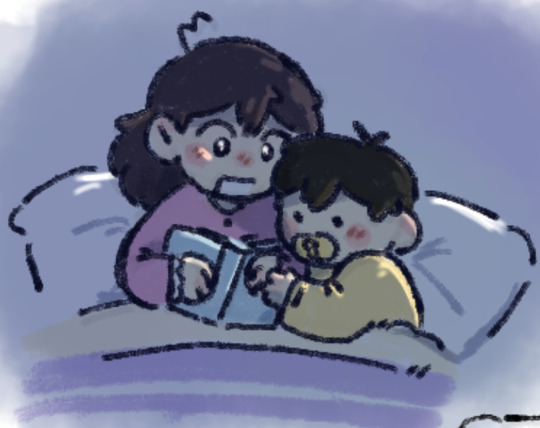
this was a tiny little thing from a doodle page but ueeueueeueueueu *starts sobbing*
954 notes
·
View notes
Text
Frankly, I was more uncomfortable with the Black Space segment before the murder (technically manslaughter and cover-up) twist. I don’t think I’m the first one to complain about this, but the twist broke my immersion more than it amplified the discomfort. It made something that felt very grounded suddenly have this… like, weird Agatha Christie veneer to it. That’s the dissonance I’m talking about. I can give you a 100% guarantee that the intention was not for me to react to that twist with “wait… what? Is it like, a metaphor, or… they didn’t really hang her from a tree themselves, right? Like with a jump rope? Like it’s weekend at bernie’s?”
That’s harsher than I mean, though. I really do mean it when I say I felt the game mostly succeeded on its emotional beats. It’s just that the twist in particular makes the resolution of Sunny’s character a bit… odd.
The guilt for not having done enough, or perceiving oneself as having contributed to another’s suicide - in my opinion that delivers more of an emotional punch just because it thematically connects with Sunny’s relationship to Mari. That he argued with her and then killed her in what can only be described as a freak accident really just removes Mari’s death from the context of their overall relationship. Sunny may as well have tripped and fallen on her with a knife for all the fact that they had a single argument tells us about the two of them. In the context of the game, Sunny’s guilt is more or less only aesthetically about Mari and the trauma of having to hold her corpse. What Sunny actually DID was lie to his friends. That’s still a worthwhile idea to explore! I just don’t think it is as rich of an exploration of Sunny’s character as it could have been.
Omori spoilers:
I guess my biggest critique of Omori (in the context of its narrative at least) is just that it feels like it would have been both more cohesive and more compelling as a story about grief and loss, rather than about concrete guilt for having done something wrong.
Sunny’s story makes real sense in the context of a closed off boy tied to the world by small intimate friendships, now burdened by survivor’s guilt. Before the twist, I was really invested in that story. The game emphasizes so strongly the importance of not shutting oneself off from loved ones, in embracing intimacy and friendship for the sake of healing. I know people have argued the game is about telling the truth and not about forgiveness, but… that’s just clearly not true. Sunny’s journey is to forgive himself, believing that his friends will accept it. The good ending end screen is implying forgiveness between Sunny and Basil. And to that end, had Mari really killed herself, the connection between Sunny and his friends (all of whom were so deeply harmed by what Sunny did!) feels like it would be centered a lot better in the narrative.
And for the record, when I say “what Sunny did”: killing Mari was clearly an accident, but covering it up in dramatic fashion and lying about it is truly awful and cruel to all of Sunny’s friends. Setting aside how implausibly baroque that twist is, it just makes Sunny’s guilt so unnecessarily focused and specific. He is repressing a very specific lie out of fear, which just inherently undermines all this atmosphere that the game builds about being enveloped by this all-encompassing grief. The drama with Basil… practically everything to do with Basil, honestly… and the Something that follows Sunny around - that stuff benefits from the shocking imagery that surrounds Mari. But it makes it harder to empathize with Sunny’s growth. Owning up to a lie is a valuable lesson, but the way Omori weaves it together with themes of forgiveness and moving on from loss is just kind of… dissonant, in a way that I don’t think was intentional. I agree that having done something wrong does not make Sunny or Basil bad people, but it does make the tone of Sunny’s journey feel kind of insensitive in its own right. The others suffered just as much as Sunny, yet their own healing is secondary to Sunny’s within the narrative. Not to mention, had Mari really committed suicide, that would have been a really compelling way to illustrate what it means for people to refuse to open up. Mari could have been a reflection of Sunny. It’s only too natural to imagine Sunny having a sense of survivor’s guilt in that context - how could Mari have been so unhappy without Sunny knowing it? That is an idea I was sad to see go unexplored.
Anyway, I honestly think Omori’s big emotional beats still mostly land, and in broad strokes I think there are a lot of good ideas being thoughtfully explored. I just think the resolution missed a bit of an opportunity to bring its ideas together at the end in favor of trying to surprise the audience with something shocking. That’s a bit of a shame, I think.
16 notes
·
View notes
Text
Omori spoilers:
I guess my biggest critique of Omori (in the context of its narrative at least) is just that it feels like it would have been both more cohesive and more compelling as a story about grief and loss, rather than about concrete guilt for having done something wrong.
Sunny’s story makes real sense in the context of a closed off boy tied to the world by small intimate friendships, now burdened by survivor’s guilt. Before the twist, I was really invested in that story. The game emphasizes so strongly the importance of not shutting oneself off from loved ones, in embracing intimacy and friendship for the sake of healing. I know people have argued the game is about telling the truth and not about forgiveness, but… that’s just clearly not true. Sunny’s journey is to forgive himself, believing that his friends will accept it. The good ending end screen is implying forgiveness between Sunny and Basil. And to that end, had Mari really killed herself, the connection between Sunny and his friends (all of whom were so deeply harmed by what Sunny did!) feels like it would be centered a lot better in the narrative.
And for the record, when I say “what Sunny did”: killing Mari was clearly an accident, but covering it up in dramatic fashion and lying about it is truly awful and cruel to all of Sunny’s friends. Setting aside how implausibly baroque that twist is, it just makes Sunny’s guilt so unnecessarily focused and specific. He is repressing a very specific lie out of fear, which just inherently undermines all this atmosphere that the game builds about being enveloped by this all-encompassing grief. The drama with Basil… practically everything to do with Basil, honestly… and the Something that follows Sunny around - that stuff benefits from the shocking imagery that surrounds Mari. But it makes it harder to empathize with Sunny’s growth. Owning up to a lie is a valuable lesson, but the way Omori weaves it together with themes of forgiveness and moving on from loss is just kind of… dissonant, in a way that I don’t think was intentional. I agree that having done something wrong does not make Sunny or Basil bad people, but it does make the tone of Sunny’s journey feel kind of insensitive in its own right. The others suffered just as much as Sunny, yet their own healing is secondary to Sunny’s within the narrative. Not to mention, had Mari really committed suicide, that would have been a really compelling way to illustrate what it means for people to refuse to open up. Mari could have been a reflection of Sunny. It’s only too natural to imagine Sunny having a sense of survivor’s guilt in that context - how could Mari have been so unhappy without Sunny knowing it? That is an idea I was sad to see go unexplored.
Anyway, I honestly think Omori’s big emotional beats still mostly land, and in broad strokes I think there are a lot of good ideas being thoughtfully explored. I just think the resolution missed a bit of an opportunity to bring its ideas together at the end in favor of trying to surprise the audience with something shocking. That’s a bit of a shame, I think.
16 notes
·
View notes
Text
There’s something so uncomfortable about being totally on board with a piece of media for 95% of it only for something that happens at the end to kinda lose you. It’s like… as a whole, I loved 95% of this or more. But it is recontextualized in light of this thing I disliked at the end. Ultimately I still really liked the thing… but like, did I???
0 notes
Text
having finished OMORI, I have some mixed feelings about some of the game’s central ideas and its major twist, but at the end of the day, its presentation and characters really got me. It’s a real gut punch!
ultimately, whenever a piece of fiction has you really wishing things could have turned out differently - not in a metatextual, “this story could have had stronger writing or plotting” kind of way, but in a flailing, “i just wish the characters could have had a happier ending” kind of way... to me, that is the number one sign that the story did something right. its pathos has gotten through to you.
I’m finding more and more that the fiction I find most compelling always has this major overtone of, “if only things could have been different”. Something awful has happened, that’s life, but you have to pick up the pieces and move on. Very few ideas resonate more with the experience of living life, I feel, whether that is on a big scale or a small one.
3 notes
·
View notes
Video
youtube
extremely good (disturbing) overview by Dan Arrows of the entrenchment of vitriolic anti-trans rhetoric in the american right. Matt Walsh is just vile.
0 notes
